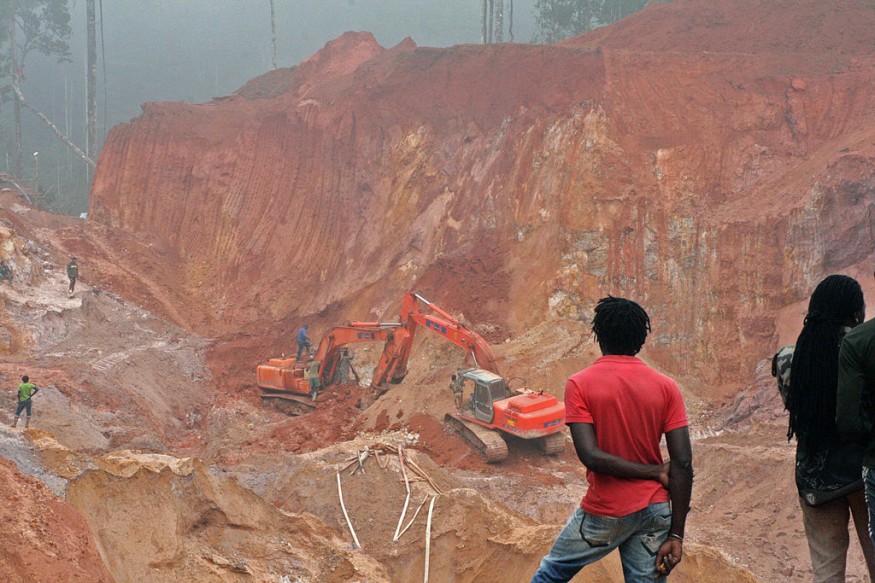Suriname Gold Mine Collapse: 14 Dead, 7 Missing as Illegal Gold Mine Turns Into South America's Biggest Mining Disaster

Suriname has suffered what many are calling the worst mining disaster in South America as a gold mine in Rosebel, one of South America's largest open-pit gold projects, collapsed.
The death toll for this mining disaster is currently standing at 14, with seven people still reported missing, according to Loop Caribbean News. The initial number was 10 dead, but more bodies were recently recovered from the collapsed mining pit.
President Chandrikapersad Santokhi initially announced the ten confirmed dead in front of Suriname's congress, known as the National Assembly. He revealed that the incident happened at 3:00 PM local time at a tunnel that was temporarily constructed. That tunnel had "considerable depth," and it collapsed, burying a number of gold miners.
"As a government, we are shocked and offer our condolences to the relatives," the President said in a statement. He then added that the Suriname government is now considering whether to declare a day of national mourning for the miners or several days of national mourning.
Investigations into the collapse are now ongoing, with police officers, soldiers, and members of the National Disaster Management Coordination Centre being deployed to the area to provide assistance. The investigation itself is being headed by the country's Attorney General. A French search and rescue team has also been dispatched to help search for more bodies.
Suriname Gold Mine Collapse Happened Inside a Mine Owned by a China-Controlled Company
The incident, considered the worst mining disaster in South America, happened on a concession belonging to a subsidiary of Chinese state miner Zijin Mining, as revealed by Suriname officials.
The area was called Rosebel Gold Mines, the subsidiary purchased by Zijin in February, and it was known for being filled with illegal miners. The company released a statement saying that it regretted the deaths and claimed that it had tried to remove informal miners, known locally as porknokkers, with an eviction order. However, this eviction order did not work as the illegal miners soon returned, according to Mining.com.
"We have been in discussions with the Surinamese authorities for quite some time, during which we have repeatedly emphasized the dangers of illegal gold mining," the company said in a statement. "There have been several efforts earlier this year to address this dangerous situation."
Zijin, which has mining operations all over South America to feed China's increasing demand for other countries' mineral wealth, has faced issues with informal and illegal mining operations within their other mines in South America.
Suriname and Its History With Illegal Miners
Even before the deadly gold mine collapse, Suriname has long struggled against illegal, small-scale mining for years. It is estimated that around 15,000 people are working in the small mining sector, and these include not just Suriname natives but also Brazilians and Chinese, according to the Associated Press.
Since the collapse, Suriname has vowed to impose tighter restrictions on these small-scale mining operations. President Chandrikapersad Santokhi said that officials have agreed on taking a "stricter and tighter" approach to regulating the gold sector.
This article is owned by Latin Post.
Written by: Rick Martin
WATCH: Mining the Golden Mountains of Suriname With An Ex-Rebel Leader - Vice
Subscribe to Latin Post!
Sign up for our free newsletter for the Latest coverage!
© 2026 Latin Post. All rights reserved. Do not reproduce without permission.















